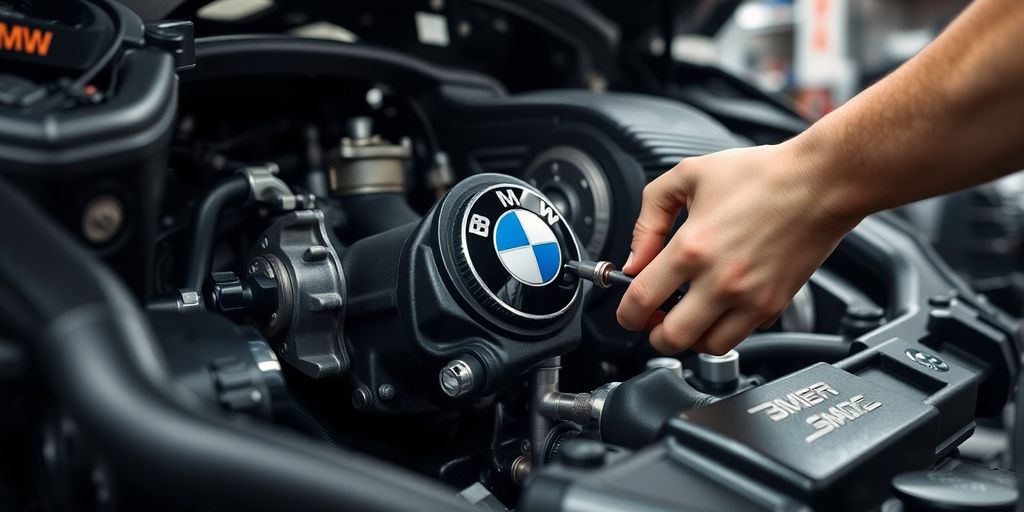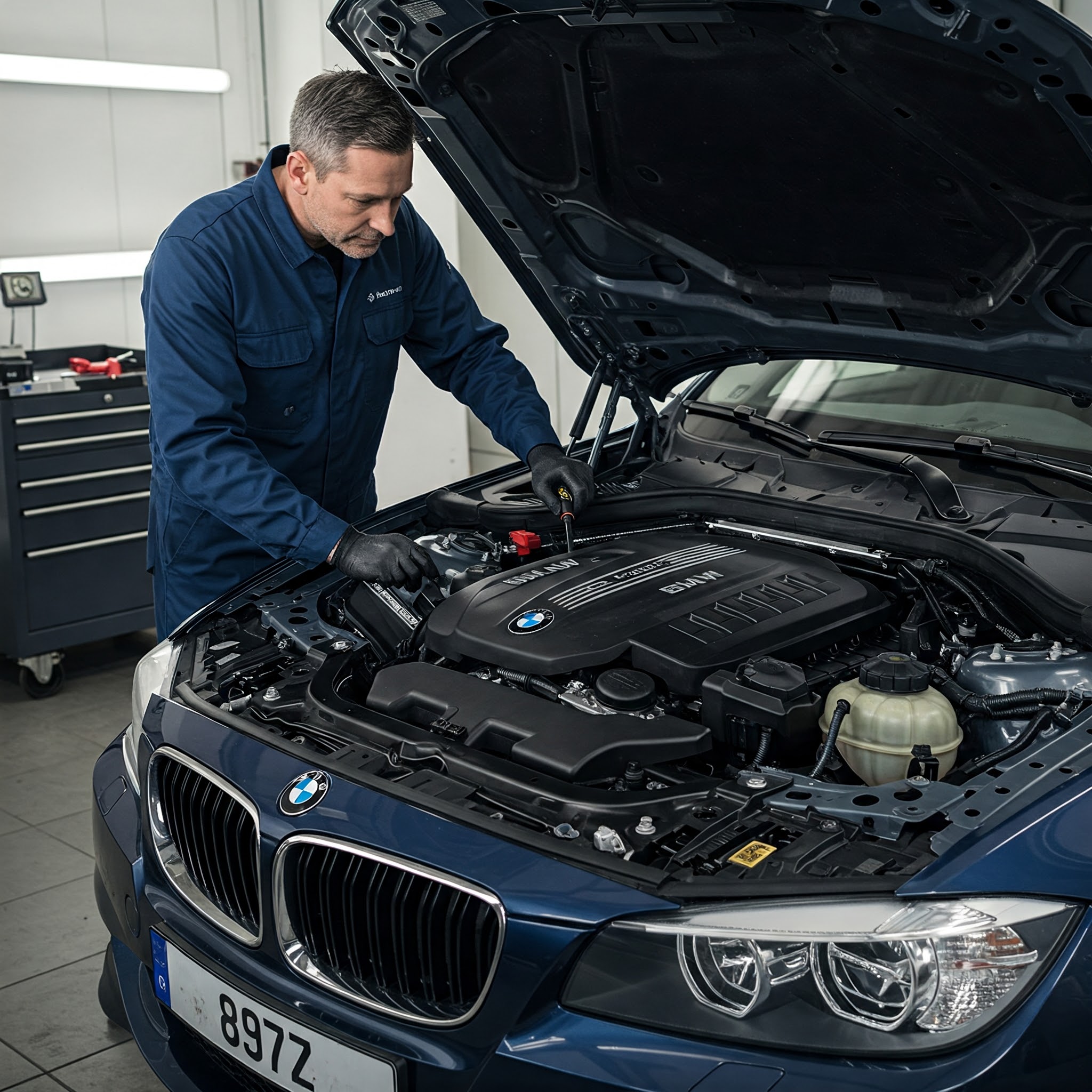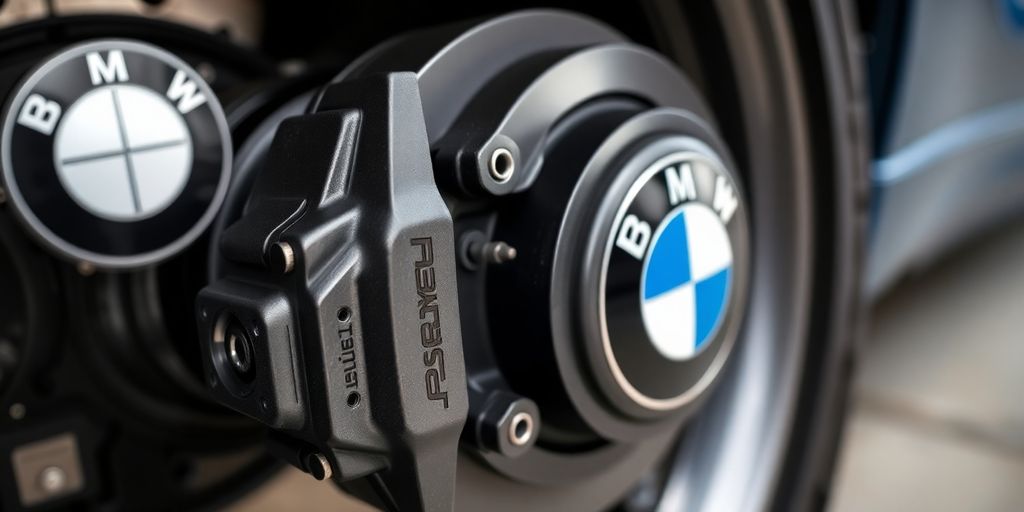
Essential Guide to BMW Tune Up: Ensuring Optimal Performance and Longevity
Hey there, BMW enthusiasts! If you’re cruising around in one of these beauties, you know that keeping it in tip-top shape is key. BMWs are awesome machines, but they need some love to keep running smoothly. Regular tune ups are like giving your car a spa day. They help ensure your ride’s performance stays sharp and that it sticks around for the long haul. In this guide, we’re diving into everything you need to know about tuning up your BMW, so buckle up!
Key Takeaways
- Regular maintenance is crucial for keeping your BMW performing well and lasting longer.
- Using genuine BMW parts can prevent compatibility issues and ensure optimal performance.
- Knowing when to DIY and when to call a pro can save you time and money.
- Keeping up with BMW’s maintenance schedule helps avoid unexpected breakdowns.
- Adapting maintenance to your driving conditions can improve your BMW’s longevity.
Understanding the Importance of Regular BMW Tune Ups
Why Regular Maintenance Matters
Keeping your BMW in top shape isn’t just about the joy of driving; it’s about making sure it performs well and stays reliable for a long time. Regular tune-ups are key to catching small issues before they become big, expensive problems. Think of it like a health check-up for your car. Just like you wouldn’t skip a doctor’s appointment, don’t skip on your car’s maintenance.
The Impact on Performance and Longevity
Tune-ups directly affect how your BMW runs. A well-maintained car not only runs smoother but also lasts longer. Ignoring maintenance can lead to decreased fuel efficiency, sluggish performance, and even engine damage over time. Regularly checking vital components like the cooling system ensures that your engine doesn’t overheat, which can save you from costly repairs.
Common Misconceptions About Tune Ups
Many folks think tune-ups are just about changing the oil or swapping out a few filters, but there’s more to it. It’s a comprehensive check that looks at everything from fluid levels to the condition of your brakes and tires. Some believe that newer cars don’t need as much attention, but even the latest models require regular care to stay in top condition. Skipping tune-ups might save you a buck now, but it could cost you a lot more down the line.
Regular maintenance is like a promise to your car that you’ll keep it running smoothly and efficiently. It’s an investment in its future and in your peace of mind.
Key Components of a BMW Tune Up

Engine Oil and Filter Changes
Changing the engine oil and filter is like giving your BMW a clean slate. Regular oil changes keep the engine running smoothly and prevent wear and tear. BMWs often have long intervals between oil changes, typically around 10,000 to 15,000 miles, but if you’re doing lots of short trips or driving in tough conditions, you might want to change it more often, say every 5,000 to 7,500 miles. Keeping up with oil changes is crucial for engine health and longevity.
Inspecting and Replacing Air Filters
Air filters keep dirt and debris out of the engine and cabin. For optimal performance, you should check and replace these filters regularly. Engine air filters generally need replacement every 15,000 to 30,000 miles, though if you drive in dusty areas, you might need to do it sooner. Cabin air filters, which help keep the air inside your BMW clean, should be swapped out every 12,000 to 15,000 miles. Neglecting air filter maintenance can lead to reduced performance and efficiency.
Checking and Maintaining Fluid Levels
Fluids are the lifeblood of your BMW. From coolant to brake fluid, keeping these at the right levels is essential. Coolant should be replaced every 30,000 to 60,000 miles, while brake fluid usually needs changing every 20,000 to 30,000 miles. Regular checks help prevent overheating and ensure the brakes work properly. It’s a good idea to keep an eye on these fluids and top them off as needed to avoid any nasty surprises down the road.
Regular inspections of critical components like air filters, cooling systems, and belts are essential for maintaining a BMW’s performance and reliability. Neglecting these maintenance tasks can lead to decreased efficiency and potential issues. Learn more about the importance of these inspections.
Tire and Brake System Maintenance for BMWs

Tire Pressure and Rotation
Keeping your tires in top shape is a must for your BMW’s performance and safety. Tires are the only part of your car that touch the road, so they need some love.
- Tire Pressure: Check your tire pressure once a month and before hitting the road for long trips. You can find the right pressure in your owner’s manual or on a sticker inside the driver’s door.
- Tire Rotation: Rotate your tires every 6,000 to 8,000 miles. This helps them wear evenly and last longer.
- Alignment: If your BMW pulls to one side or the steering wheel feels off, it might be time for an alignment check. Proper alignment ensures even tire wear and smooth handling.
Brake Pad and Rotor Inspections
Brakes are all about safety. You don’t want to mess around with them. Keep an eye on your brake pads and rotors. Look for signs like squealing noises or less stopping power.
- Inspection Frequency: Inspect your brakes every 20,000 miles or if you notice any issues. Regular checks can prevent bigger problems down the road.
Remember, regular brake fluid replacement is key to keeping your braking system in top shape. Follow BMW’s schedule to avoid any surprises.
The Role of Wheel Alignment
Wheel alignment isn’t just about keeping your car straight. It plays a big role in how your BMW handles and how long your tires last. Misalignment can lead to uneven tire wear and make your ride less comfortable.
- Signs of Misalignment: If your car drifts to one side or the steering wheel isn’t centered, it’s time to check the alignment.
- Frequency: Have your alignment checked every 10,000 to 15,000 miles or if you notice any issues. It’s a small step that can save you money on tires and improve your driving experience.
Keeping up with tire and brake maintenance isn’t just about avoiding problems—it’s about getting the most out of your BMW. A little attention goes a long way in keeping your ride smooth and safe.
Advanced BMW Maintenance Strategies
Utilizing BMW’s Digital Maintenance Systems
Modern BMWs come equipped with advanced digital maintenance systems that are like having a personal mechanic riding shotgun. These systems, like BMW’s ConnectedDrive, offer remote diagnostics and regular updates to keep your car in top shape. The convenience of accessing diagnostic features remotely means fewer surprises on the road. Staying updated with these systems not only boosts performance but also helps in catching issues before they become major headaches.
The Importance of Professional Inspections
While it’s tempting to handle everything yourself, professional inspections are key. Certified BMW technicians have the tools and expertise to spot problems that might fly under your radar. Regular check-ups can catch small issues, like a worn brake pad, before they turn into costly repairs. Think of it as a health check-up for your car. Even if your BMW seems fine, a professional eye can ensure everything is running smoothly.
Incorporating Seasonal Maintenance Tips
Seasonal changes can affect your BMW’s performance, so adjusting your maintenance routine is smart. For winter, make sure to check your coolant levels to prevent engine overheating. Also, consider these tips:
- Winter: Ensure your tires have good tread and consider switching to winter tires for better grip.
- Spring: Time for a thorough wash and wax to protect against rust from winter road salt.
- Summer: Check your AC system to ensure it’s ready to keep you cool.
Regular maintenance tailored to the seasons can extend your BMW’s life and keep it running smoothly all year round.
The Role of Genuine BMW Parts in Tune Ups
Benefits of Using OEM Parts
When it comes to maintaining your BMW, opting for Original Equipment Manufacturer (OEM) parts can make a significant difference. OEM parts are crafted specifically for your BMW model, ensuring a perfect fit and optimal performance. Unlike aftermarket parts that might not meet the same standards, OEM parts are designed to work seamlessly with your vehicle’s systems. This tailored compatibility not only maintains your BMW’s integrity but also supports its longevity.
Risks of Aftermarket Alternatives
While aftermarket parts might seem appealing due to their lower price, they often come with hidden costs. These parts may not match the quality and specifications of OEM parts, potentially leading to performance issues or even voiding your warranty. Moreover, using non-OEM parts can reduce your car’s resale value, as buyers often prefer vehicles maintained with genuine BMW parts.
Ensuring Compatibility and Performance
Ensuring your BMW runs smoothly involves more than just regular maintenance; it’s about using the right parts. Genuine BMW parts are engineered to meet the exacting standards set by BMW, providing peace of mind that your vehicle will perform at its best. These parts are not only about maintaining performance; they also ensure safety and reliability on the road. Investing in genuine parts is essential for maintaining optimal performance, safety, and resale value, contributing to a lasting luxury driving experience.
DIY vs Professional BMW Tune Ups
Pros and Cons of DIY Maintenance
Taking the DIY route for your BMW tune-up can be tempting, especially if you enjoy getting your hands dirty and saving a few bucks. But, let’s be real, it’s not just about changing the oil or swapping out spark plugs. BMWs are complex machines, and without the right tools and knowledge, you might end up causing more harm than good. On the plus side, doing it yourself can be a learning experience and a way to bond with your car. However, you need to weigh this against the risk of voiding warranties or making costly mistakes.
When to Seek Professional Help
Knowing when to hand over the keys to a pro is crucial. If your BMW is making strange noises, or if you’re seeing dashboard warnings that you can’t decipher, it might be time to call in the experts. Professional mechanics have the training and tools to diagnose and fix issues correctly. They can also handle complex tasks like electronic diagnostics or intricate engine work. So, if you’re unsure or uncomfortable with the task at hand, it’s best to let a professional take over.
Cost Considerations and Savings
DIY maintenance might seem cheaper upfront, but consider the long-term costs. Mistakes can lead to expensive repairs, and using non-OEM parts might affect your car’s performance and resale value. On the other hand, professional services might cost more initially, but they often come with warranties and the assurance that the job is done right. Here’s a quick comparison:
| DIY Maintenance | Professional Service |
|---|---|
| Lower upfront cost | Higher upfront cost |
| Risk of costly mistakes | Professional expertise |
| No warranty on work | Warranties often included |
| Learning opportunity | Peace of mind |
It’s not just about the money; it’s about peace of mind and ensuring your BMW runs smoothly for years to come. Consider your skills and the task complexity before deciding.
Scheduling and Frequency of BMW Tune Ups
Understanding BMW’s Maintenance Schedule
Owning a BMW isn’t just about the thrill of driving; it’s also about keeping up with its maintenance schedule. This schedule is like your car’s health check-up plan. It’s designed by BMW engineers who know exactly what your car needs and when it needs it. Following this schedule helps ensure your vehicle remains in top shape, performing reliably and safely. Most BMWs come equipped with a Condition Based Service (CBS) system, which alerts you to necessary maintenance tasks based on your driving habits and conditions.
Signs Your BMW Needs a Tune Up
Sometimes, your BMW might give you hints that it needs a tune-up. Here are a few signs to watch out for:
- Unusual noises: If your car starts making strange sounds, it might be time for a check-up.
- Warning lights: Pay attention to any dashboard lights that come on unexpectedly.
- Performance issues: If you notice a drop in performance or fuel efficiency, it’s worth getting it looked at.
Adapting Tune Ups to Driving Conditions
Not all BMWs need the same tune-up schedule. Factors like how often you drive, the type of roads you travel on, and even the climate can affect how often your car needs maintenance. For instance, if you’re often driving in harsh conditions or short distances, your car might need more frequent oil changes. It’s wise to consult your owner’s manual or a professional to tailor your maintenance schedule to your specific driving habits. Regularly visiting a BMW service center for preventative maintenance every 5,000 miles is a good rule of thumb to keep your car running smoothly.
Wrapping It Up
So, there you have it, folks. Keeping your BMW in tip-top shape isn’t just about following a schedule—it’s about understanding your car’s needs and giving it the attention it deserves. From regular oil changes to checking those brakes and tires, every little bit helps in making sure your ride stays smooth and reliable. Remember, a well-maintained BMW not only performs better but also lasts longer, saving you headaches and money down the road. So, keep an eye on those maintenance reminders, and don’t hesitate to consult with a pro when needed. Happy driving!
Frequently Asked Questions
How often should I get a tune-up for my BMW?
It’s a good idea to follow BMW’s recommended schedule, which usually suggests a tune-up every 30,000 miles. However, if you drive in tough conditions, you might need to do it more often.
What are the signs my BMW needs a tune-up?
If your car is having trouble starting, using more fuel, or making strange noises, it might be time for a tune-up.
Can I do a BMW tune-up myself?
Some parts of a tune-up, like changing the oil or air filter, can be done at home if you have the right tools. But for more complex tasks, it’s best to see a professional.
Why should I use genuine BMW parts?
Using genuine parts ensures everything fits right and works well, keeping your car running smoothly and safely.
What happens if I skip regular tune-ups?
Skipping tune-ups can lead to engine problems, lower performance, and even costly repairs down the road.
How do I know if I need professional help for my BMW?
If you’re unsure about any noise or issue, or if the problem seems big, it’s smart to get a professional to check it out.

